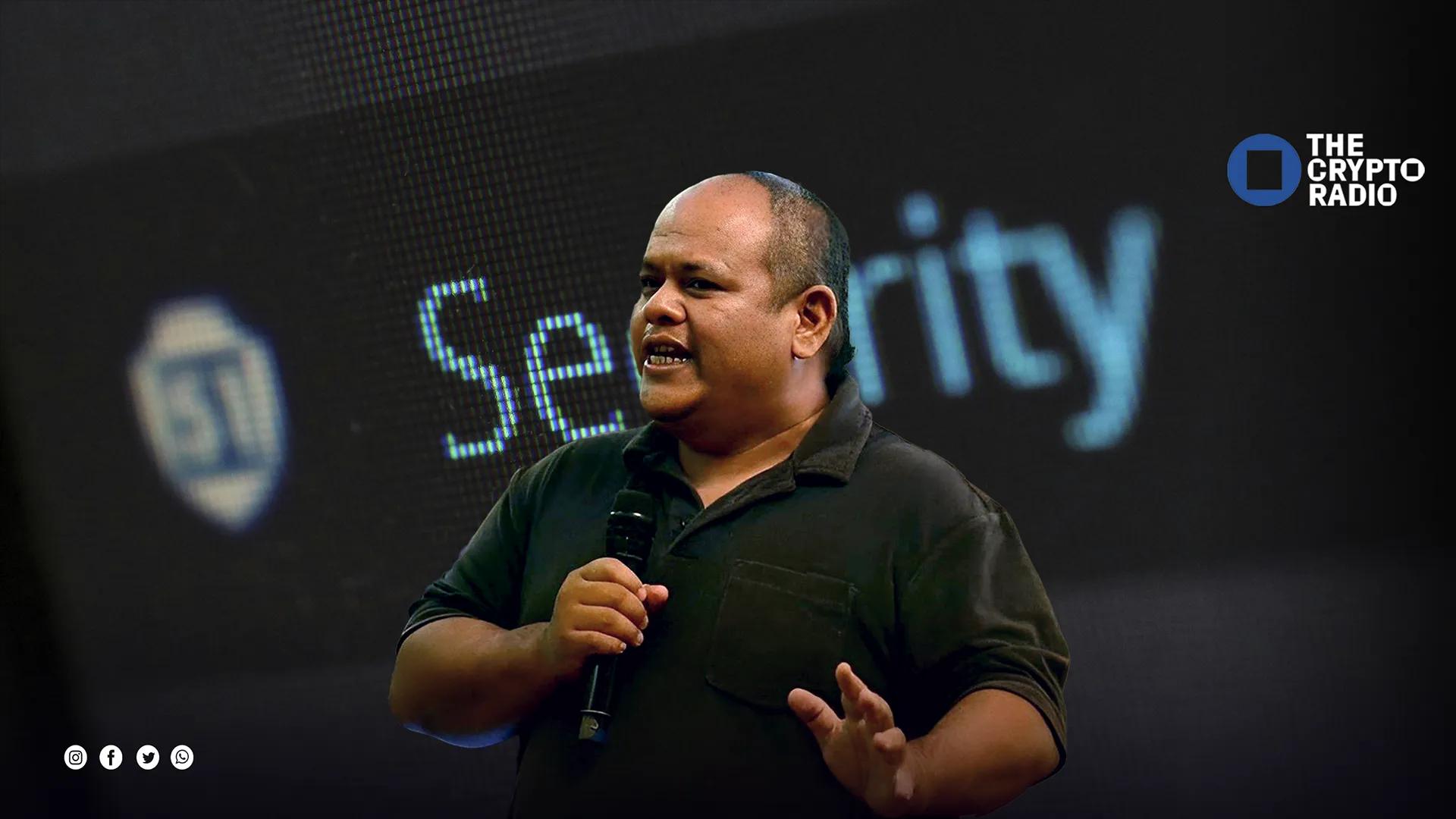Ferdie James Nervida tracks hacks and trains talent
'It's just a very lucrative industry right now,' says the blockchain forensics expert, urging digital workers to start with curiosity

"Back when I was still mining Bitcoin in 2016, it was really rough, and it was just a very niche kind of hobby," said Ferdie James Nervida. The turning point came during the pandemic, when cryptocurrency prices surged, pushing him to dig deeper into the underlying technology.
That journey ultimately led to Nervida’s involvement with the Blockchain Practitioners Association of the Philippines (BPOP), which he co-founded in Davao City in 2020. The group’s goal is to help digital workers across the country tap into emerging opportunities in blockchain and cryptocurrency.
"Our main vision for BPOP is to make blockchain accessible to everyone, especially the digital workforce of today," he told The Crypto Radio at Philippine Blockchain Week.
Nervida noted that many online workers remain unfamiliar with the space. "Most of our digital workforce are not really well versed in blockchain or cryptocurrency," he said. "There’s a big opportunity for work – and it’s a very lucrative industry right now."
Discovering a niche in crypto forensics
"I was first accepted as a business development executive from an international exchange," Nervida said. "Now I am a blockchain forensic specialist and investigator in AnChain AI."
The shift led him into a highly specialized field. "It’s a very, very niche kind of expertise," he said, "but it's also very lucrative."
"I'm quite good in investigations and reading cryptocurrency hack cases," he added.
At AnChain AI, Nervida helps track and recover funds from scams, frauds, and exploit cases. His team works with clients who have lost millions to bad actors in the crypto space. Using on-chain analysis and digital traceability tools, they follow money flows and attempt to freeze stolen funds when possible.
What makes the work especially meaningful for Nervida is the human impact. Many clients approach him after exhausting traditional routes. For them, crypto forensics isn’t just about recovering money – it’s about restoring trust.
Building a national certification
"We are currently developing the Blockchain and Cryptocurrency Specialist Certification," Nervida said. The program, created in partnership with the Department of Information and Communications Technology (DICT), launched in the Lagat islands and expects to graduate around 30 specialists next month.
For aspiring professionals, Nervida recommends starting by inquiring with local DICT offices about the certification. He believes it could become a key advantage for job seekers, especially those with digital backgrounds but no formal blockchain experience.
The idea is that if someone with this certification applies for a job, the prospective employers "can be very confident that that candidate is very well versed in that industry," he said.
The program doesn’t require deep technical expertise upfront – just curiosity and the willingness to learn. By offering hands-on training and an official certificate, it’s designed to make blockchain education more approachable and practical for ordinary Filipinos.
Preparing Filipinos for global demand

The Philippines is preparing its digital workforce for global crypto roles through blockchain education and certification. Photo: Unsplash / Road Ahead
"Most crypto native companies want employees with a strong background in cryptocurrency and blockchain technology," Nervida said.
He believes Filipino tech professionals are well-positioned to meet this demand – if given the right support and credentials. That’s why he’s focused on both community-level engagement and government collaboration.
"I can see that there is really a lot of adoption, not only locally, but also internationally. And I think there's also very good traction with regards to stablecoin eruptions in our world markets," he said.
His message for digital workers is simple: the door is open. Freelancers, virtual assistants, and even online gamers can leverage blockchain literacy to access higher-paying roles. The industry is hungry for people who understand how crypto works – not just engineers, but investigators, marketers, and compliance analysts too.
"It's just takes a little bit of time and also curiosity," Nervida added – the same mindset that got him started nearly a decade ago.
A roadmap for the next wave of talent
"In less than five years, cryptocurrencies, stablecoins, and blockchain technology will become mainstream, not just a bleeding-edge technology," Nervida said.
His journey from hobbyist to specialist is more than just a personal success story – it’s a blueprint for others looking to grow in a fast-moving industry. With scam recovery work on one side and education programs on the other, Nervida is building a bridge between crisis response and long-term opportunity.
"If I can do it, then I think everyone can do it," he said.
As blockchain technology continues to evolve, professionals like Ferdie James Nervida are not just keeping pace – they’re actively shaping the space through mentorship, public–private partnerships, and hands-on education.
For the Philippines, that means more than just economic opportunity. It’s a chance to become a regional leader in blockchain talent. And for digital workers wondering where to start, Nervida’s advice is clear: look to your local DICT office, ask questions, and stay curious. The tools are already here – you just have to pick them up.




